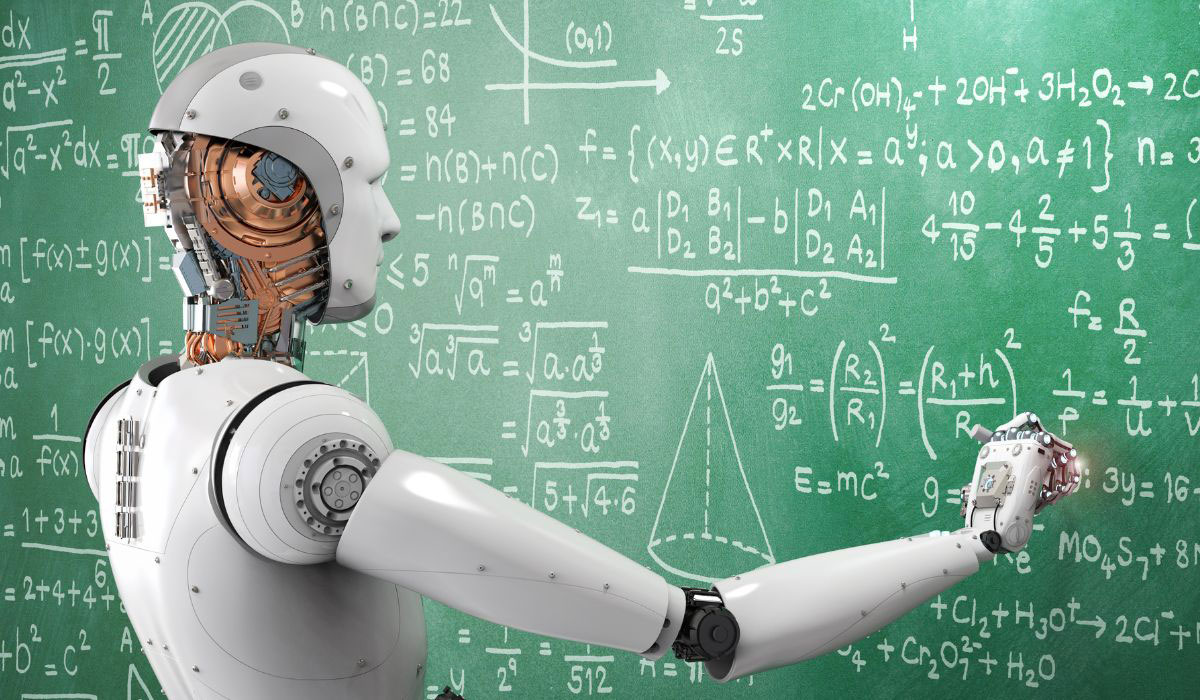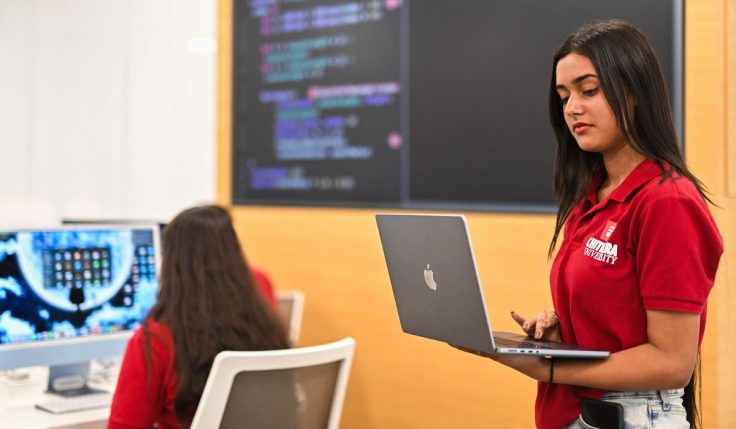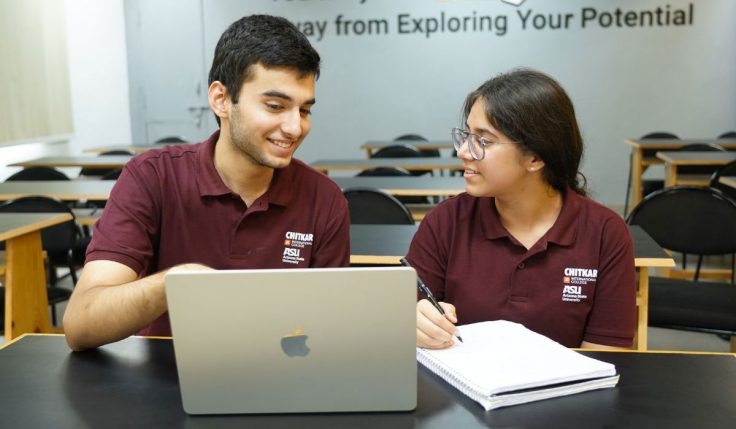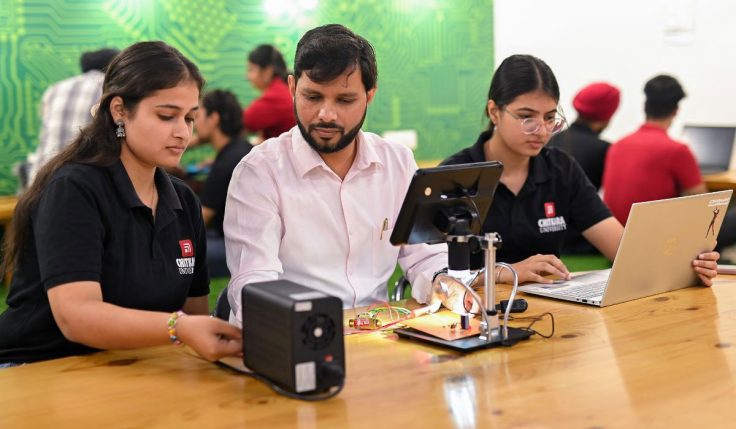The field of education in India is undergoing a transformational shift thanks to the integration of artificial intelligence (AI) and remote learning technologies. AI, along with machine learning, has the potential to revolutionise the way education is imparted, making it more personalised, adaptive, and accessible. Remote learning platforms, powered by AI, have emerged as viable alternatives to traditional classroom-based education, especially in light of the recent disruptions caused by the COVID-19 pandemic.
How AI and remote learning can play a crucial role in reviving higher education in India
- Enhancing Educational Experiences through AI can enhance educational experiences by providing personalised and adaptive learning environments. Intelligent tutoring systems powered by AI can analyse student data, identify individual learning needs, and tailor educational content accordingly. AI algorithms can also provide instant feedback, identify knowledge gaps, and offer targeted interventions to support student learning.
- Improving Accessibility with Remote Learning platforms, enabled by AI, have the potential to democratise education by improving accessibility. Students from remote areas or those with physical limitations can access quality education through online platforms. AI-powered chatbots and virtual assistants can provide immediate support and address queries, thereby bridging the gap between students and teachers.
- Fostering Personalised Learning AI enables the collection and analysis of vast amounts of data, allowing educational institutions to develop personalised learning pathways for students. Machine learning algorithms can identify individual learning preferences, strengths, and weaknesses, enabling educators to deliver customised content and learning experiences. Adaptive learning platforms can provide tailored recommendations and resources to optimise student engagement and success.
- Significance of AI Courses and Artificial Intelligence Programs To prepare students for the future workforce, it is essential to incorporate AI courses and artificial intelligence programs into higher education curricula. These programs equip students with the knowledge and skills necessary to navigate the evolving technological landscape. Students gain a deep understanding of AI principles, algorithms, and applications, empowering them to contribute to the development and implementation of AI solutions across various industries.
- Challenges and Considerations While the integration of AI and remote learning brings significant benefits, it is important to address challenges such as data privacy, equity, and digital infrastructure. Educational institutions and policymakers must ensure the ethical and responsible use of AI in education and work towards bridging the digital divide to ensure equal access for all students.
- Conclusion The integration of AI and remote learning has the potential to revive higher education in India by enhancing educational experiences, improving accessibility, and fostering personalised learning. AI courses and artificial intelligence programs are essential to equipping students with the skills necessary to thrive in a technology-driven world. However, careful consideration of challenges and ethical considerations is crucial to ensuring the responsible use of AI in education. By harnessing the power of AI and remote learning, India can revolutionise its higher education landscape and empower the next generation of learners.
- Adaptive Assessments: AI-powered assessment systems can analyse student performance and provide personalised feedback. By adapting the difficulty level and content of assessments based on individual capabilities, AI ensures that students are appropriately challenged and supported in their learning journey.
- Virtual Reality (VR) and Augmented Reality (AR): The integration of VR and AR technologies with remote learning platforms can create immersive and engaging educational experiences. Students can explore virtual environments, conduct virtual experiments, and participate in simulated scenarios, enhancing their understanding and retention of complex concepts.
- Intelligent Content Recommendation: AI algorithms can analyse students’ learning patterns, preferences, and performance data to recommend relevant educational resources. This personalised content recommendation system helps students access supplementary materials, videos, articles, and interactive learning tools that align with their individual needs.
- Data-Driven Insights: AI-powered analytics tools can process large volumes of data generated by students, providing valuable insights to educators. These insights can help identify areas for improvement, track student progress, and make data-informed decisions to optimise teaching methods and curricula.
- Continuous Learning and Upskilling: AI and remote learning platforms enable continuous learning beyond traditional classroom settings. Professionals and working individuals can access online courses, webinars, and virtual workshops to upskill and stay updated with the latest industry trends and advancements.
- Collaboration and Global Connections: Remote learning platforms facilitate collaboration among students from different geographical locations. AI-powered tools enable seamless communication, group projects, and virtual teamwork, fostering a global network of learners and promoting cultural exchange.
- Personalised Student Support: AI-powered chatbots and virtual assistants can provide round-the-clock support to students, answering queries, offering guidance, and assisting with administrative tasks. This personalised support system ensures that students receive timely assistance and feel supported throughout their academic journey.
- Adaptive Remediation: AI algorithms can identify knowledge gaps and provide targeted remedial resources to students who need additional support. By offering personalised interventions, AI helps students overcome challenges and enhances their overall learning outcomes.
Also, read this blog post: AI Transformation in Education-Introduction
The role of AI and remote learning in revitalising higher education in India is immense. AI’s ability to personalise learning, improve accessibility, and provide data-driven insights is transforming the educational landscape. By integrating AI courses and artificial intelligence programs into curricula, educational institutions can equip students with the skills required for the future workforce. As India embraces AI and remote learning technologies, it is crucial to address challenges such as data privacy, digital infrastructure, and ethical considerations to ensure equitable access and responsible use of these technologies. By leveraging AI and remote learning, India can shape a more inclusive, innovative, and learner-centric higher education system.
Chitkara University is at the forefront of leveraging AI and remote learning to revive higher education in India. The university recognises the transformative potential of these technologies and has taken several initiatives to empower students with cutting-edge tools and platforms.
- Integration of AI in Curriculum-Driven Learning Management Systems:
- Virtual Labs and Simulations
- Collaboration through Remote Learning Platforms: AI-driven Student Support
- Data Analytics for Enhanced Learning Outcomes
- Continuous Learning and Professional Development
- Industry Collaboration and Placement Opportunities
Chitkara University’s commitment to integrating AI and remote learning into its educational practices is a testament to its dedication to providing a holistic and future-ready education to its students. By leveraging these technologies, the university is equipping students with the necessary skills and knowledge to thrive in the evolving landscape of higher education and contribute to the advancement of AI in India.






